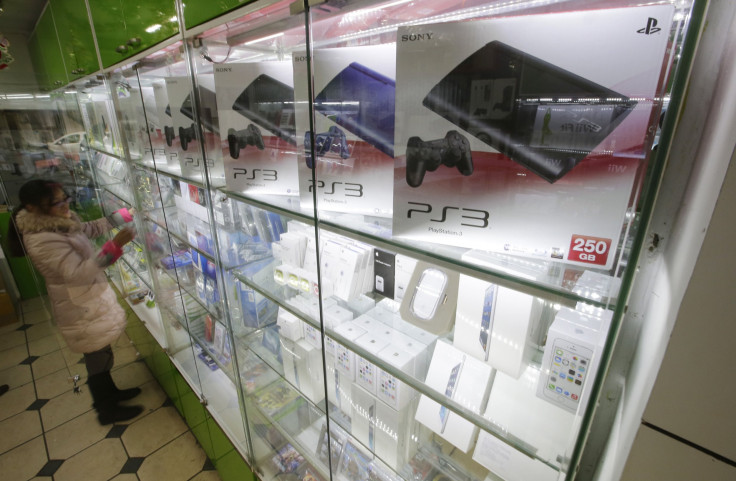Sony Signs Deal With Shanghai Oriental Pearl To Make And Sell PlayStation Consoles In China

Sony Corp (NYSE:SNE) has signed a deal with Shanghai Oriental Pearl (Group) Co. Ltd (SHA:600832) to sell PlayStation gaming consoles in China, the world’s largest market for video games, which recently lifted a 13-year ban on sales of gaming consoles in the country.
The deal will lead to the creation of two joint ventures -- both to be located within the Shanghai free-trade zone -- to make and sell Sony’s PlayStation consoles in China, Shanghai Oriental Pearl said, in a stock exchange filing Monday, adding that the Japanese conglomerate would have a 49 percent stake in one venture and 70 percent in the other, Bloomberg reported.
“Sony entering the China market can broaden sales,” Ryosuke Katsura, a Tokyo-based analyst at UBS AG, told Bloomberg. “PlayStation 4’s online game network service can help the company avoid piracy issues that are more prevalent with packaged games.”
Sony’s move to tap the video-game fan base in China comes after Microsoft Corporation (NASDAQ:MSFT) announced plans in September to sell the Xbox One console in the country. Japan’s Nintendo Co., Ltd (TYO:7974) also said, earlier in May, that it planned to expand in emerging markets with new devices.
Last September, China lifted a 13-year ban on the sales of video-game consoles in the country, allowing foreign companies to sell consoles and games, provided they operate within the free-trade zone in Shanghai, with more relaxed financial and investment controls. Microsoft, in the same month, invested $237 million in a joint venture with BesTV New Media, a subsidiary of state-run Shanghai Media Group, to develop games within the zone, the Wall Street Journal reported.
However, it will not be easy for Sony and Microsoft to sell their products in China, due to widespread piracy and smuggling of consoles and games, according to reports. In addition, Chinese developers and publishers have adopted a “free to play” model, which makes games free but helps local developers make money by selling in-game upgrades such as extra lives and special weapons, Reuters reported.
According to PricewaterhouseCoopers, a consulting firm, China’s video-game industry will generate about $10 billion in sales next year, while console makers try to pull Chinese players away from games loaded on their smartphones and tablet devices.
“In China you don’t need to have a large market share to hit your numbers,” David Rubenstein, a managing director at Advanced Research Japan in Tokyo, told Bloomberg. “You just need a few million enthusiastic gamers.”
© Copyright IBTimes 2024. All rights reserved.












